NBP periodically publishes short articles on nuclear energy matters which either have a geographic or topical focus. Feel free to browse through all our articles and if you would like to read on something specific, please use the search function. For example, you can search for articles relating to Africa or India or financing or SMR etc. You can also use the filter function to see articles pertaining to Asia, Africa, India or Türkiye.
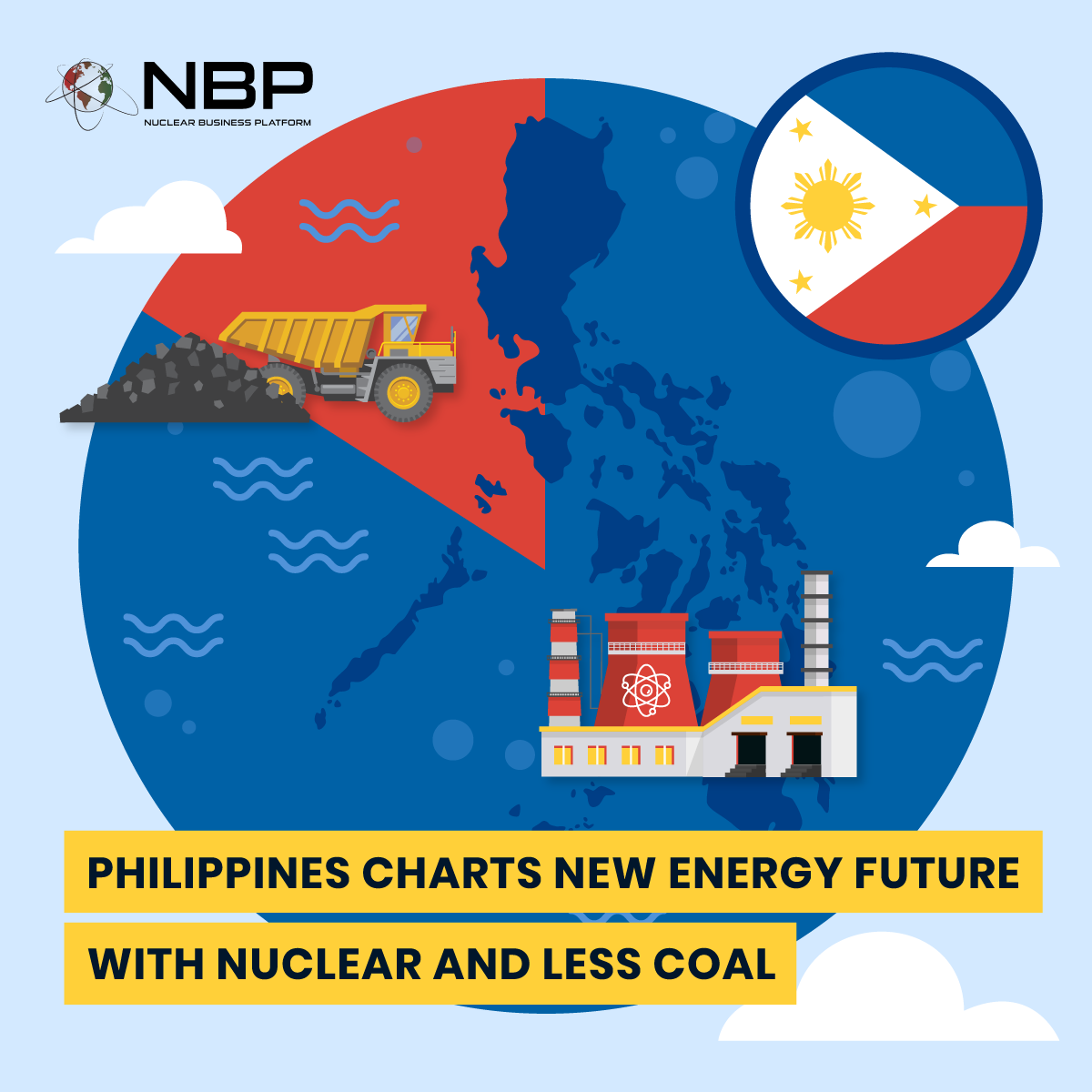
Philippines Charts New Energy Future with Nuclear and Less Coal
The Philippines, under the leadership of President Marcos, is undergoing significant changes in its energy landscape due to rising energy demands, costly electricity, and heavy dependence on coal imports. In response to these challenges, the Philippines is revising its energy roadmap to incorporate nuclear energy while simultaneously increasing its targets for renewable energy sources.
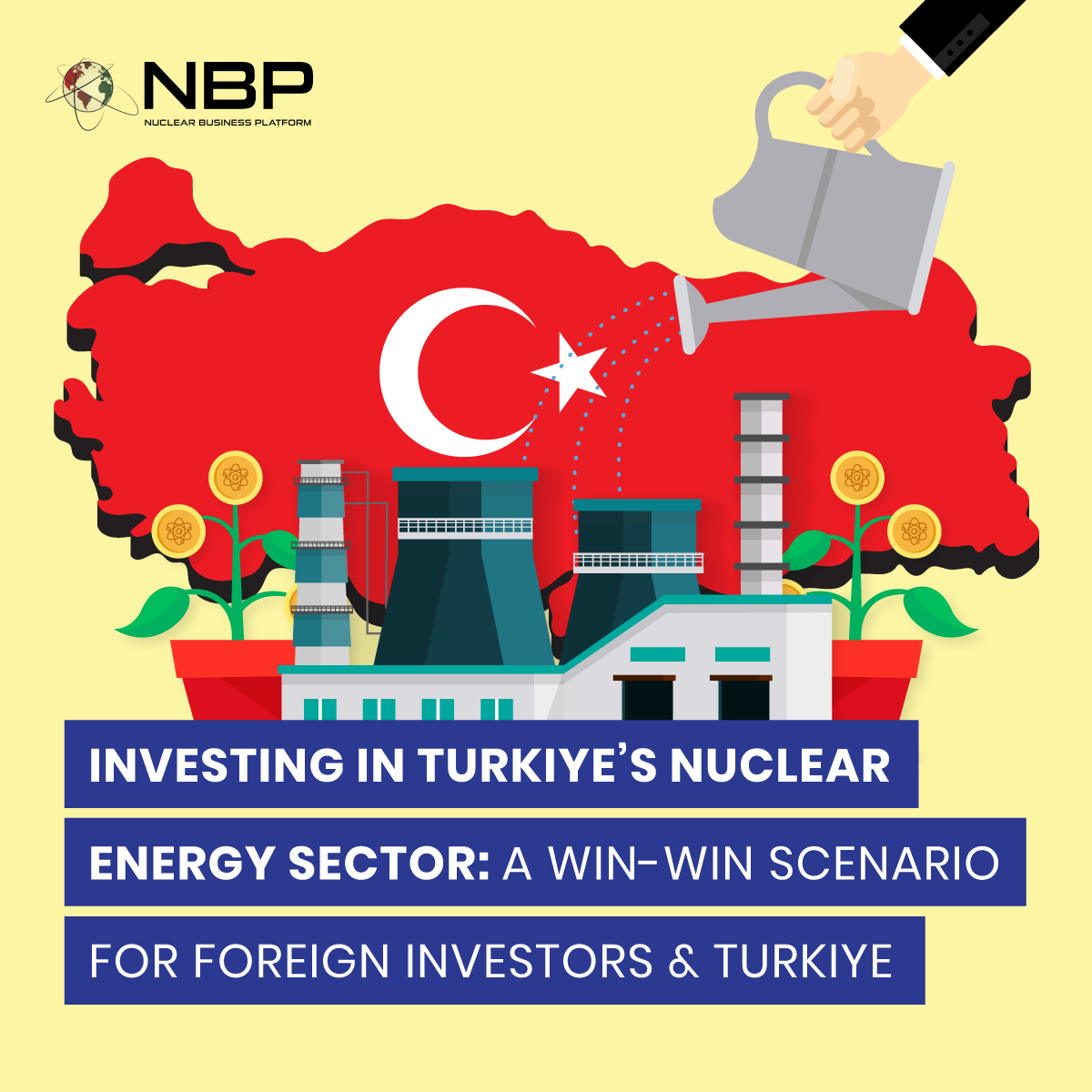
Investing in Turkiye’s Nuclear Energy Sector: A Win-Win Scenario for Foreign Investors & Turkiye
Turkiye, with its surging energy demands, strategically advantageous location, and supportive legal framework, beckons foreign investors to embark on a transformative journey within its burgeoning nuclear energy sector. This article delves into the myriad incentives and opportunities that Turkiye presents to international investors keen on participating in the establishment and operation of nuclear power plants (NPPs) within its borders. We shall explore the favorable landscape that Turkiye has meticulously cultivated for the investors.

Indonesia's Utility Giant Aims for Green Future with SMR Plans in West Kalimantan
PT PLN is pursuing an energy transition and decarbonization strategy to achieve carbon neutrality by 2060. The utility giant plans to focus on nuclear and clean energy sources. PLN, BRIN and NuScale have established a Collaboration Agreement to conduct a Techno-Economic Assessment for the construction of SMR in West Kalimantan to support the region's power system.
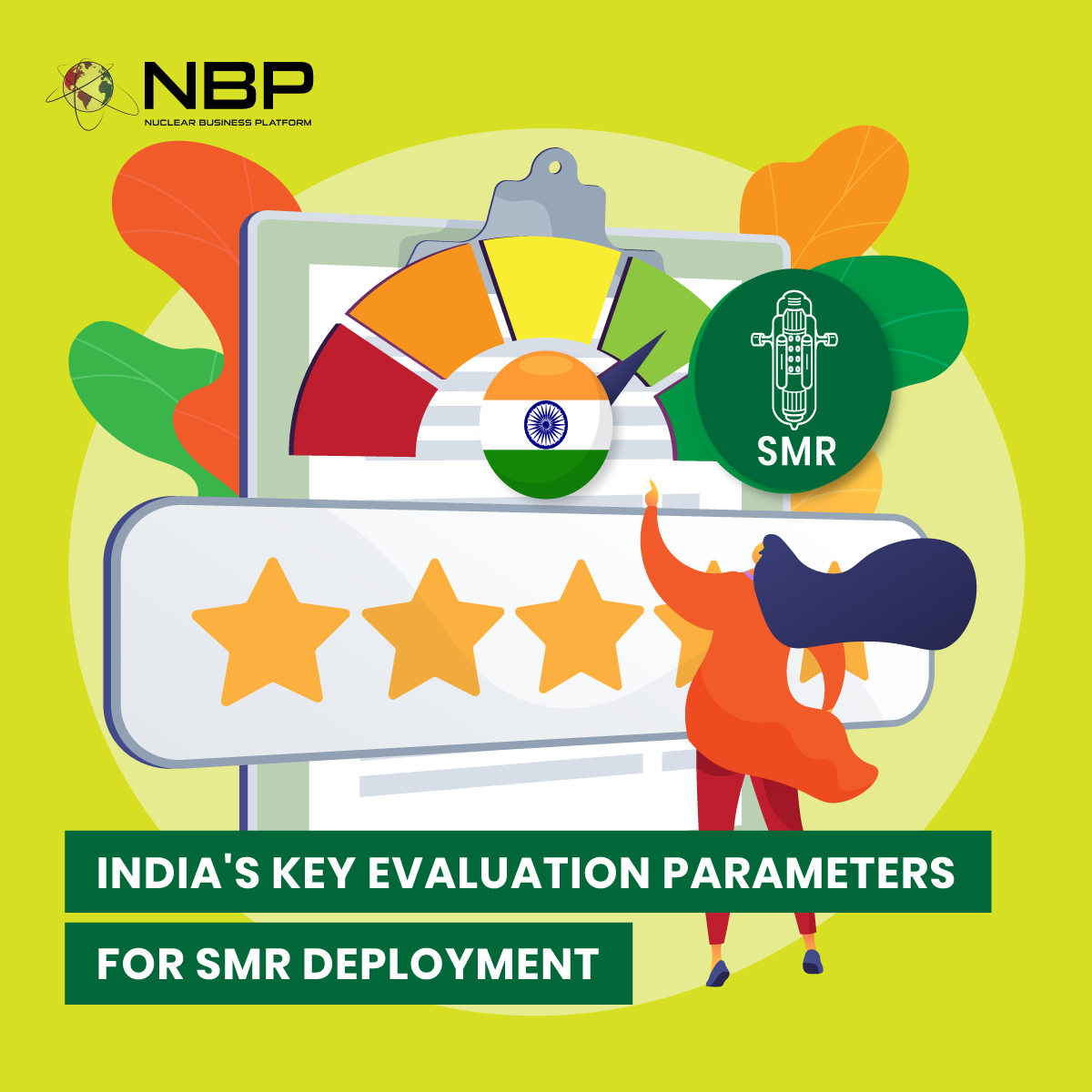
India's Key Evaluation Parameters for SMR Deployment
To support this nuclear scale-up through SMRs, global collaboration is an essential element. Senior Officials from Indian establishment made it amply clear that India urgently require quick deployment of SMRs in the country and will be evaluating deployment capability for different SMR designs based on following key features and key parameters. Learn more on the key parameters which is India looking for.
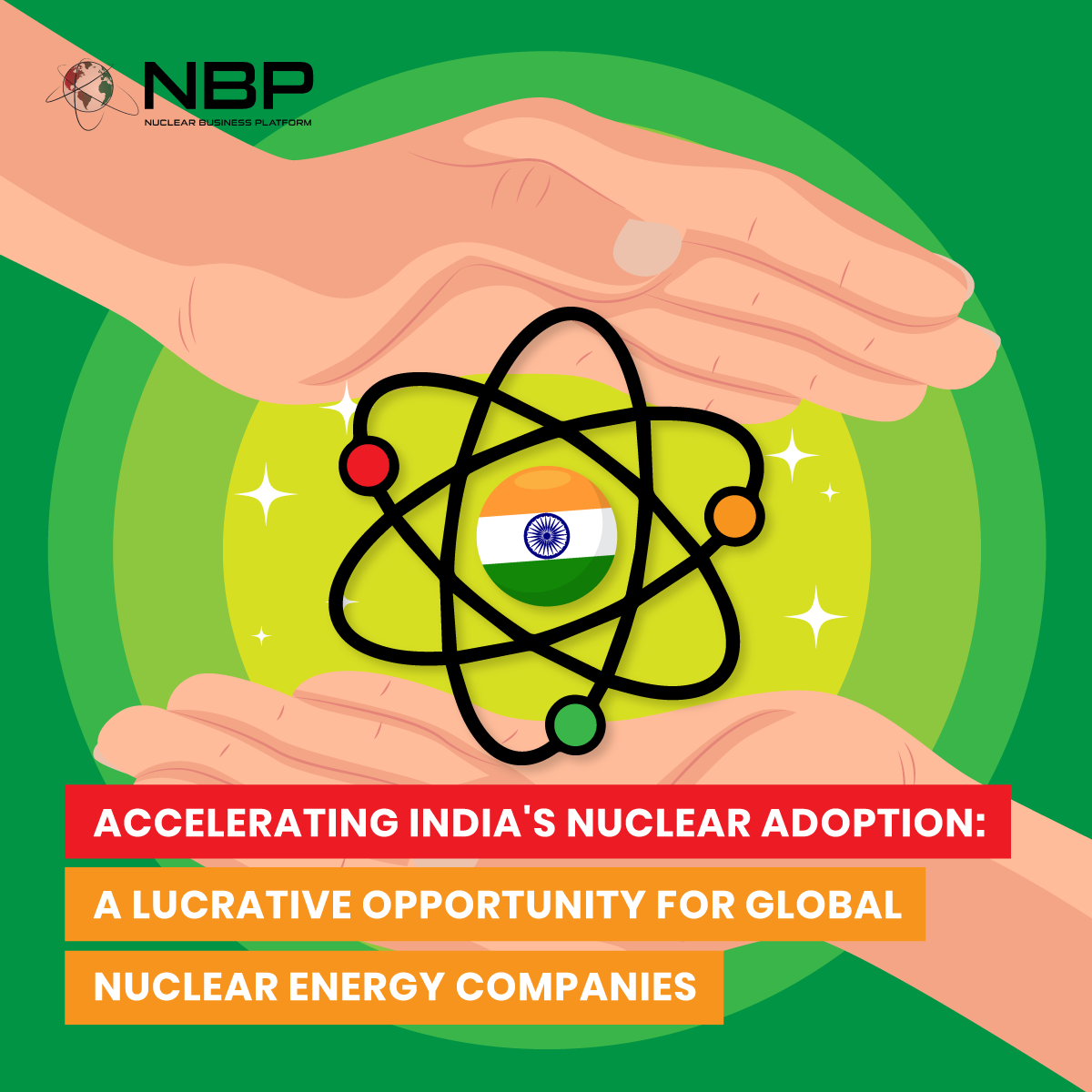
Accelerating India's Nuclear Adoption: A Lucrative Opportunity For Global Nuclear Energy Companies
India has set its sights on nuclear energy to meet its future energy needs. The nation has set an ambitious target of producing 9% of its electricity from nuclear sources by 2047, additionally aiming to achieve net-zero emissions by 2070. Nuclear power has the potential to offer consistent baseload power while reducing carbon emissions, making it a crucial player in India's energy landscape. To drive the adoption of nuclear power, it is important to take a comprehensive and strategic approach. Additionally, we must consider how nuclear business companies can participate in the Indian nuclear sector.
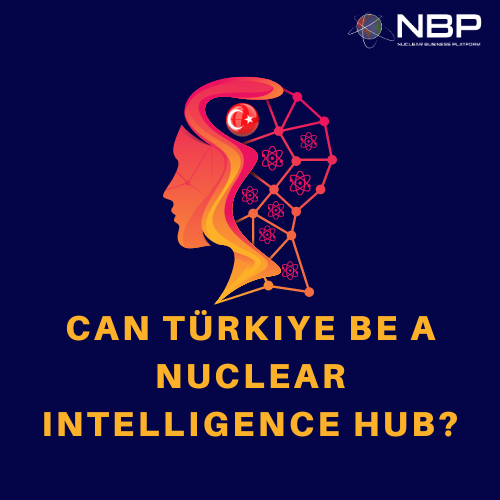
Can Türkiye Be A Nuclear Intelligence Hub?
As the first Akkuyu NPP unit nears completion and plans for future NPP installations in Sinop and Ignaeda take shape, Turkiye's progress in becoming a nuclear intelligence hub is gaining momentum, heralding a new era of pioneering achievement. Turkiye's strategic location, educational focus, and determination to cultivate expertise in this field make it an important candidate to become a center for nuclear intelligence and engineering.

Breaking Free from Coal: How SMR Technology Can Be a Solution in Securing ASEAN's Energy Independence
The ASEAN region heavily relies on fossil fuels, particularly coal, for power generation. The cumulative installed capacity of coal power plants in ASEAN stands at approximately 89.5 GW, accounting for roughly 31% of the region's total installed capacity. The advent of SMRs provide an opportunity for ASEAN economies to transition away from their coal addiction to clean source of energy, nuclear energy.

Indonesia Seeks International Support for Nuclear Power Program
Indonesia’s National Research and Innovation Agency (BRIN) is currently working on human resource development, technological capabilities and zoning as part of preparing a strategy for the development of nuclear power in Indonesia. BRIN has also emphasized on the need for involvement of foreign parties in the development of nuclear power in Indonesia.

Asia’ Rise As A Nuclear Titan
Asia's emergence as a nuclear powerhouse signals a transformative shift in the global energy landscape. The balance of power is shifting from West to East, with nuclear technology and energy production becoming increasingly centered in Asian nations. As Asian countries like China, India, and South Korea invest in cutting-edge technology, infrastructure, and human capital, they challenge the historical dominance of Western nuclear leadership.

Indian Nuclear Liability: No Concern for Global Suppliers!
There are certain inhibitions and hesitations of global suppliers to do business in the Indian nuclear market, particularly arising out of liability issues. But is liability really a concern for suppliers or a roadblock for them? It’s quite pertinent to understand, demystify and debunk the liability doubts to give way for advancing business collaboration in the Indian market. We look at 15 key points for international suppliers to bear in mind on the subject of liability.

Türkiye - China Steady And Growing Ties
Commemorating the remarkable milestone of their 50-year diplomatic journey in 2021, the Republic of Türkiye and the People’s Republic of China (PRC) have not only fostered enduring political ties but have also cultivated a dynamic economic partnership that continues to flourish. In the civil nuclear sector, China aims to construct the 3rd nuclear power plant in Türkiye. Agreement for cooperation in the peaceful uses of nuclear energy signed and ratified in 2016 between the two countries.

Is Nuclear Power Singapore's Best Bet for Energy Independence?
Over 95% of Singapore's electricity currently comes from imported natural gas. Singapore has embarked on diversified energy strategies to decrease its dependence on fossil fuels and reduce greenhouse gas emissions. However the primary emphasis in the pursuit of clean energy has been on solar power. Perhaps the Lion City needs to seriously consider adopting nuclear energy if it aspires for energy independency.

Philippines Utility Giants Eye Nuclear Energy
The Philippines, as one of the fastest-growing economies in Southeast Asia, faces the challenge of ensuring reliable energy while balancing environmental concerns. Two major utility players, The Manila Electric Co. (Meralco) and Aboitiz Group, are at the forefront of these transformative efforts, both eyeing nuclear energy as part of their sustainability strategy.

India’s Energy Transition in a Carbon-Constrained World and the Role of Nuclear in the Overall Scheme
Recently, India’s premier think tank Vivekananda International Foundation (VIF) and IIT Bombay came out with a very interesting and well-researched comprehensive report on ‘India’s Energy Transition in a Carbon Constrained World’. VIF and IIT Bombay formed a joint task force to carry out a comprehensive research to study the critical requirements and implications of India’s energy transition, The report aims to establish the cost-effective ways for reaching net zero by 2070 and assesses economic and financial implications of energy transition while exercising different options to do so.

TÜNAŞ Granted Owner Status To Build Türkiye’s 2nd Nuclear Power Plant - Sinop
TÜNAŞ Is responsible for the planning phase of new nuclear power plants in Türkiye. It was granted the prestigious "Owner" status on January 27th, 2023, for its application to build a nuclear power plant in the Sinop Site. Russia and South Korea have expressed interest to build their reactors at Sinop.

ASEAN Nuclear Power Quest: A Reality For Philippines And Indonesia Soon?
Over the decades, the quest for nuclear power in Southeast Asia have a experienced many false-promises due to a myriad of reasons, often non-technology related but political. Recently Indonesia and the Philippines have demonstrated a renewed interest in harnessing this clean source of energy. How do these two countries match up and which of the two looks more likely to be the first member of the Southeast Asia Civil Nuclear Power club?

50 Years of India-Korea Relations: Enhanced Nuclear Cooperation Next?
With the Indian government keen to add more nuclear capacity through both indigenous and foreign technology coupled with South Korea ambitions to export more nuclear reactors, this could be a perfect area for enhanced cooperation in the civil nuclear sector.

Utility Led Nuclear Power Projects: The Future In ASEAN?
Nuclear power programs in the ASEAN region has traditionally been led by governments. However in recent times, with the emergence of SMRs, utilities in ASEAN have started showing a keen interest in adopting nuclear energy.

Türkiye Plans For More Large And Small Nuclear Reactors
Apart from the Akkuyu NPP, Türkiye is planning to build a second nuclear power plant in the Black Sea province of Sinop, a third one in the Thrace region and adopting small modular reactors (SMRs). Discussions are on-going with Russia, Korea, China, UK, USA for future nuclear projects in the country. By the 2050s, Türkiye will have over 20 GW of installed nuclear power capacity

Supplying $200m Worth of Domestic Products to Akkuyu NPP
TSE certified local manufacturers and helped supply $200m worth of domestic products to the Akkuyu NPP project. TSE was approved by Akkuyu Nukleer as the material approval organisation in Turkiye in January 2020.
